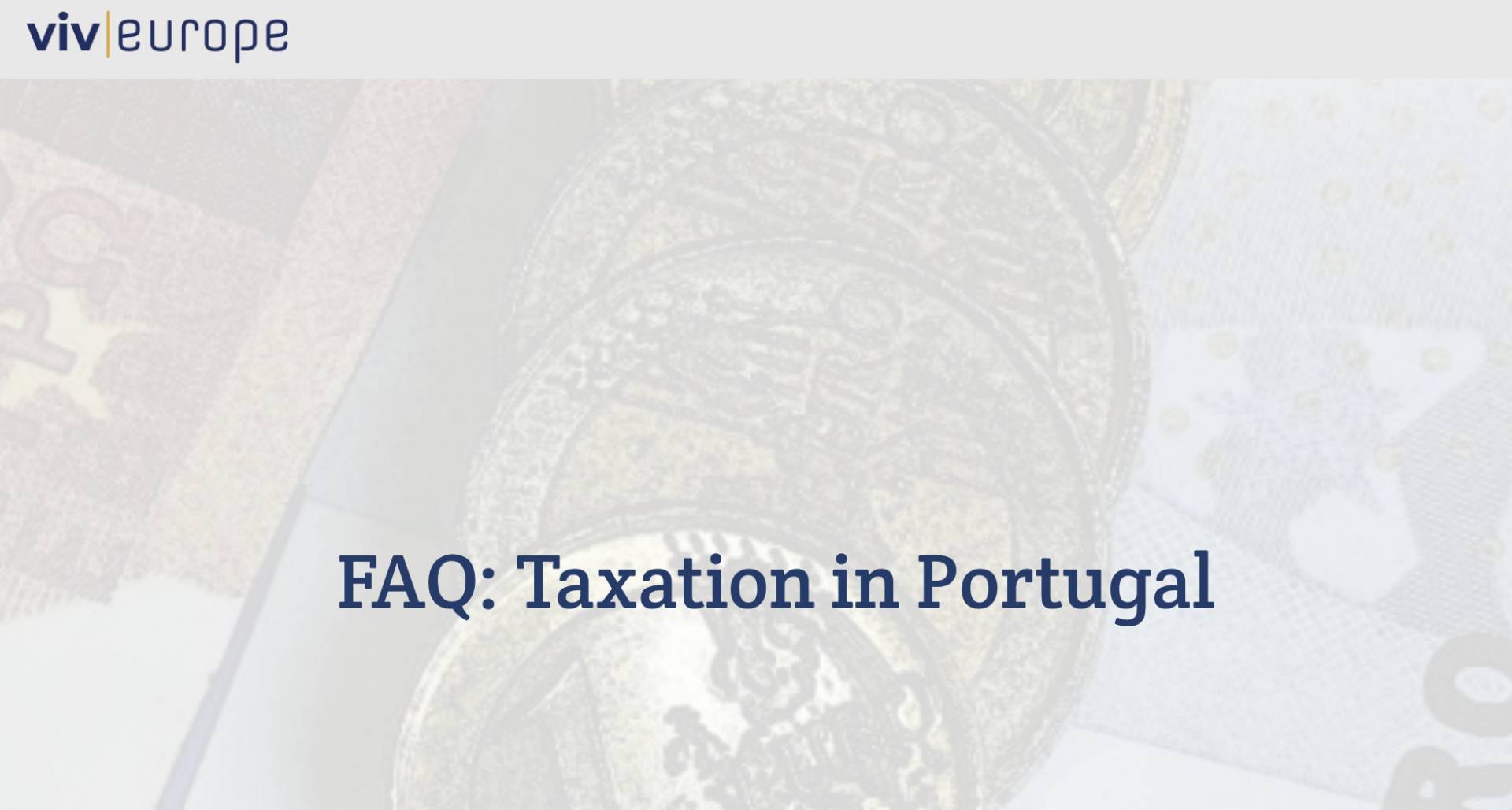
Taxes In Portugal
Today we are going to talk about one of the most requested topics for those who want to live in Portugal: Taxes.
It is well known that Portugal offers one of the best tax incentives to ex-pats who intend to live in this country, which is why so many questions arise in dealing with this topic.
But other than the incentives, Portugal obviously levies a tax on residents, whether or not they are registered in this special tax situation.
All companies here also pay taxes and that can be at a high rate.
Finally, some activities developed by citizens or companies, such as the sale of a property, may generate the obligation to pay taxes (other than income tax).
Without further ado, we will answer the most common questions related to taxation in Portugal.
To better organize this structure, we will separate the questions by topics.
Income tax
Do employees need to pay income tax in Portugal?
Let’s talk about taxes in Portugal. Before doing this, please consider that each case is a different case. We will explain only the guidelines, as an individual analysis must be carried out for a tax decision.
To pay taxes in Portugal the person must have a NIF (Tax Number) and be a resident in this country.
But what is required to be a resident? Article 16 of the Income Tax Code can answer us: “People who, in the year to which their income relates: a) have lived in Portugal for more than 183 days, and b) have spent less time, but under conditions that suggest that they currently intend to reside permanently.”
So, calculating income tax is not simple, so we need the guidance of an accountant.
Let us give you some useful information:
To calculate the Income Tax (IRS), it is necessary to consider the following information: Gross monthly salary, tax withheld at source (yes, the employer has already separated an amount of your tax), monthly social security contribution, reimbursable expenses.
After the sum of the annual income, the employee must reduce this amount with applicable deductions.
Then, it’s time to check which scale you fit, in order to check the tax rate.
Portugal:
Scale 1 – up to 7,112€ – rate: 14.50%
Scale 2 – from 7,112€ to 10,732€ – rate: 23%
Scale 3 – from 10,732€ to 20,322€ – rate: 28.50%
Scale 4 – from 20,322€ to 25,075€ – rate: 35%
Scale 5 – from 25,075€ to 39,967€ – rate: 37%
Scale 6 – from 39,967€ to 80,882€ – rate: 45%
Scale 7 – more than 80,882€ – rate: 48%
After this step, the accountant will choose the best procedure for calculating the tax, as there are different methods for doing so.
The important thing at this point is that you can be taxed between 14.5% and 48%. It is true that if you are a wealthy person, almost half of your income can go to the State.
On the other hand, it is important to underline that the majority of Portuguese are classified in scale 2, at the rate of 23%.
How are income tax rules for businesses?
Corporate income is also taxed in Portugal.
The IRC is the main tax levied on income resulting from the exercise of business activity.
There are many rules for calculating IRC and a good accountant can save a company a lot of money just by choosing the best tax regime.
It’s important to mention that profit obtained by non-resident companies (but with a permanent establishment in Portugal) can also be taxed.
As mentioned, the calculation of IRC is a complex process that implies understanding some concepts and making some calculations.
The Vendus Portal helped us with some useful concepts to effectively obtain the value of IRC due to the State:
Taxable profit – income obtained by the development of the company’s activity, fewer expenses incurred.
Taxable amount – the amount of taxable profit, fewer tax benefits and tax losses that can be deducted.
IRC rate – the standard rate is 21%.
Municipal surcharge – municipal revenue that is levied on the taxable profit of companies.
Autonomous Taxation – tax payable on some costs that the company may have (fuel, allowances, representation expenses, etc.).
Extra Fee – if the taxable profit exceeds 1,500,000€, additional fees are applied.
Therefore, please keep in mind that the company’s standard tax rate is 21% and that it is mandatory to have an accountant to manage the company’s taxes.
For the full article please view the page.
Article by Victor Queiroz of VIV Europe, legal advisors to the KipperTree property Portal.
